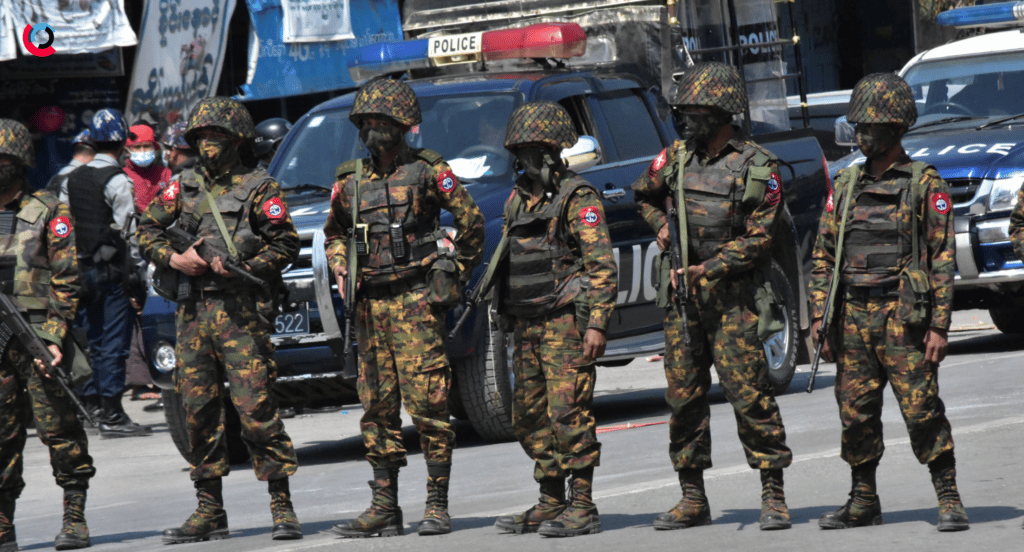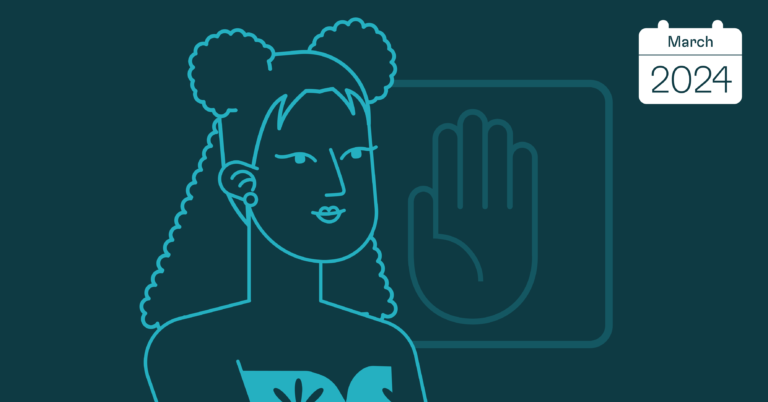By Avantika Deb
Introduction
The coup d’état launched by Myanmar’s armed forces (referred to as the Tatmadaw) on 1 February 2021 remains one of the biggest turning points in the nation’s troubled political past. The National League for Democracy (NLD)-led democratic government was overthrown and power was transferred to the Commander-in-Chief of Defense Services Min Aung Hlaing. State Counsellor Aung San Suu Kyi and President Win Myint were detained along with other ministers and members of parliament.
The November 2020 election results, which the NLD had won in a landslide, were declared invalid with the military citing unsubstantiated allegations of fraud to justify its actions. Since the 2021 military takeover, ethnic armed groups and civilian militias have become increasingly active as they continue to resist the Tatmadaw in several parts of the country. Despite the rebels putting up a strong front against the military, the political impasse is far from over as the path ahead remains fraught with uncertainty.
The Resistance
Over the past year, an anti-government resistance network has developed which consists of political, civil society and militia elements from every part of the country. This includes ousted state executives, local administrators, armed organisations – both experienced and newly-formed ones, and civil society groups providing essential services and local leadership. Minority ethnic groups have been fighting for independence or greater autonomy from the central state for decades, including the Communist Party of Burma (CPB), Karenni National Progressive Party (KNPP), New Mon State Party (NMSP), United Wa State Army (UWSP), Peace and Solidarity Committee (PSC), Karen National Union (KNU), Kachin Independence Organisation (KIO), Palaung State Liberation Front (PSLF) and Chin National Front (CNF).
Since the military takeover, some of these groups have entered into a loose alliance with a raft of new civilian militias, known as the People’s Defense Forces (PDFs). Many such actors are also brought together by the National Unity Consultative Council (NUCC), which is tasked with unifying the movement, serving as a dialogue platform and mapping out a vision for federal governance in Myanmar.
The NUCC also includes ethnic consultative councils representing the Kachin, Chin, Karenni, Mon and Taang-Palaung peoples. Frequent fighting between these armed groups and military forces have brought violent conflict in many parts of the country. Since the Tatmadaw takeover, at least 1,500 people have been known to be killed during daily anti-military protests, while thousands more have been killed in armed conflict and over 8,000 others remain unlawfully detained. Anti-junta strikes and protests are met with mass arrests, home demolitions, communications blackouts, curfews and, when all else fails, deadly force that has displaced hundreds of thousands of people nationwide, particularly in Karen, Kayah, Mon, Shan and Chin states and Magway, Bago, Sagaing and Tanintharyi regions.
Challenges
The armed wing of the KNU, the Karen National Liberation Army (KNLA), has emerged as the backbone of this explosion of anti-government resistance. Since the beginning, they have provided security to local protesters in Karen state, military training to newly-formed armed groups such as the Urban Guerillas in Yangon, protection to political dissidents and safe passage to refugees fleeing Tatmadaw-controlled areas. Elements of the CNF’s Chin National Army (CNA), KNPP’s Karenni Army (KA) and KIO’s Kachin Independence Army (KIA) have also assisted the PDF.
However, the ongoing anti-military resistance comes with a variety of additional internal and external challenges. Longstanding ethnic tensions have made it difficult for the different groups to collaborate. Although the movement has contributed significantly towards bringing the ethnic communities closer, the NUCC has found it difficult to gain the trust of minority communities towards a political process that is dominated by the ethnic Bamar majority. Years of conflict have sown the seeds of distrust of ethnic armed groups and political parties due to past broken promises, fragmented interests and disagreements over ways to resist the military. Another concern expressed by rebel group leaders is whether the exiled National Unity Government (NUG) would continue to collaborate with the KNU and other ethnic groups if Aung San Suu Kyi is released from military custody. Many ethnic groups felt that she sided with the military during negotiations over ceasefires with these groups when she came to power in 2016; she had also openly defended Tatmadaw leaders and ultranationalist Buddhist clerics against accusations of genocide targeting Rohingya Muslims in Rakhine (Arakan) state, which remains unsettled and partly depopulated due to ethnic cleansing.
The road ahead for Myanmar thus remains shrouded in the fog of civilwar as there seems to be no resolution in sight which involves and engages all parties. The military junta recently called upon the key ethnic armed groups to hold a new round of peace talks, which was rejected. The offer was viewed as an attempt to weaken the resistance by removing certain groups from the PDFs; the shadow NUG government was also not included in the invitation. In any case, many of the ethnic armed groups are unlikely to return to the negotiating table as past talks between 2011 and 2021, when the military stepped back from direct involvement in politics, did not generally transpire to their liking. Constant violence and a lack of consensus among the anti-junta organisations make it very difficult to forge a secure future path for Myanmar. The military coup has exposed the country to the risk of becoming a failed state due to the collapse of state services, war crimes and territorial fragmentation. Without solidarity and a shared political vision among the diverse political and ethnic groups, the ongoing crisis is unlikely to be resolved any time soon.
Summary
In the aftermath of the February 2021 coup in Myanmar, several ethnic armed groups and civilian militias continue to put up a strong resistance against a harsh military rule in the country. However, the political impasse is far from over as the path ahead remains fraught with uncertainty.
Avantika Deb is an India-based political and security risk analyst covering South and East Asia.















